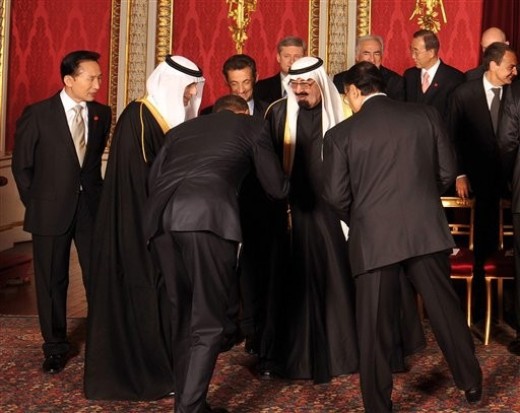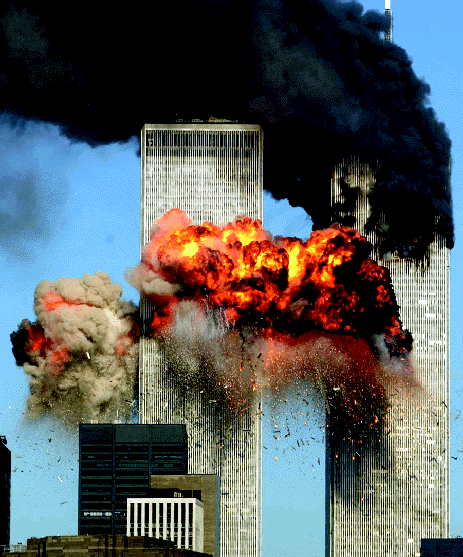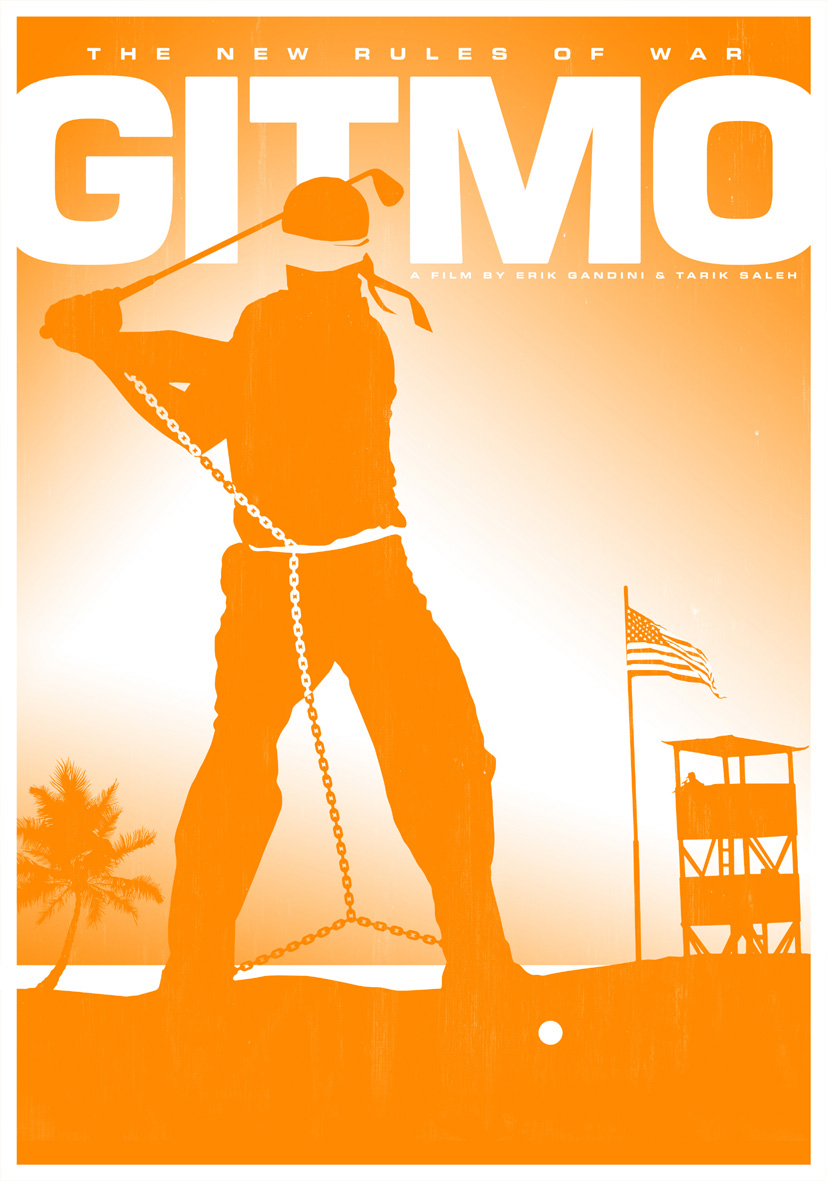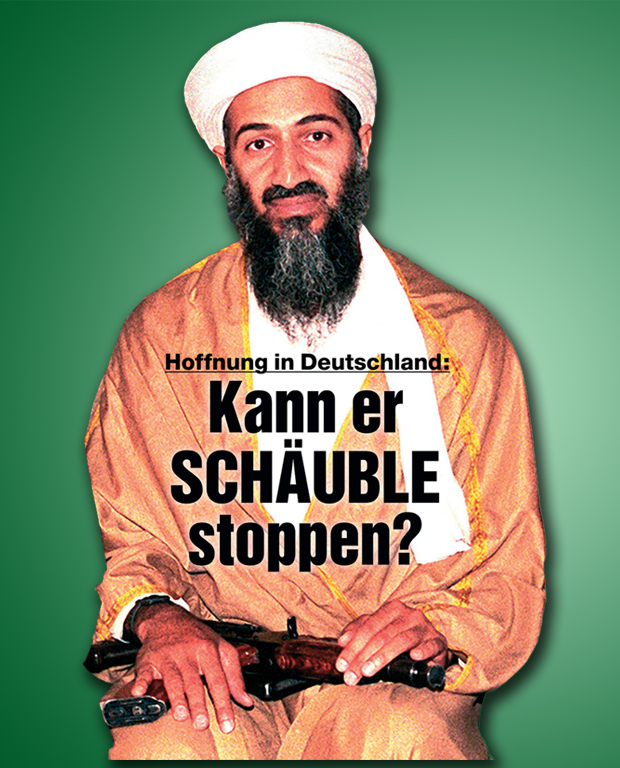
ASSOCIATED PRESS: President Barack Obama is beginning his latest bid to open a dialogue with the Muslim world by paying a call on Saudi King Abdullah, guardian of Islam’s sacred sites in Mecca and Medina. The monarch of Saudi Arabia plans to greet Obama at Riyadh’s main airport with coffee and ceremony when he arrives Wednesday after an overnight flight from Washington. Saudi Arabia is a stopover en route to Cairo, where Obama is to set deliver a speech that he’s been promising since last year’s election campaign — aiming to set a new tone in America’s often-strained dealings with the world’s 1.5 billion Muslims. Many of those Muslims still smolder over Iraq, Guantanamo and unflinching U.S. support of Israel, but they are hoping the son of a Kenyan Muslim who lived part of his childhood in Indonesia, the world’s most populous Muslim country, can help chart a new course. MORE
 RELATED: The Obama administration has made clear where it stands between victims of Sept. 11 and the Saudi royal family, as the president prepares to meet with King Abdullah this week. Last Friday, the Justice Department filed a brief with the U.S. Supreme Court taking the position that the families of those who died on 9/11 cannot sue the family for allegedly helping to finance the terrorists—15 of whom were from Saudi Arabia—who attacked the World Trade Center and the Pentagon in 2001. Solicitor General Elena Kagan sided with a lower court decision that threw out the lawsuit on grounds that the Foreign Sovereign Immunity Act members of the royal family from liability in American courts because the Saudi royal family is synonymous with the.sovereign nation of Saudi Arabia. MORE
RELATED: The Obama administration has made clear where it stands between victims of Sept. 11 and the Saudi royal family, as the president prepares to meet with King Abdullah this week. Last Friday, the Justice Department filed a brief with the U.S. Supreme Court taking the position that the families of those who died on 9/11 cannot sue the family for allegedly helping to finance the terrorists—15 of whom were from Saudi Arabia—who attacked the World Trade Center and the Pentagon in 2001. Solicitor General Elena Kagan sided with a lower court decision that threw out the lawsuit on grounds that the Foreign Sovereign Immunity Act members of the royal family from liability in American courts because the Saudi royal family is synonymous with the.sovereign nation of Saudi Arabia. MORE
SWAMPLAND: There is no right to a free press in Saudi Arabia. According to the State Department’s 2008 Human Rights report, authorities have the right, under law, to “prevent anything that can lead to disunity, sedition, and separation,” from being published. Foreign press reports are regularly censored, and all public employees are enjoined from “engaging in dialogue with local and foreign media.” MORE
STATE DEPARTMENT: The Saudi government is permitting journalists accompanying President Obama entry into the country without a visa or the usual customs procedures. While in Saudi Arabia, therefore, journalists are expressly prohibited from leaving the hotel or engaging in any journalistic activities outside of coverage of the POTUS visit. Those who do so risk arrest and detention by Saudi authorities. MORE
UPDATE: Qorvis Communications, which represents the Saudi Government in the United States, emailed reporters Monday night with an statement saying the announcement of restrictions, which was sent from the State Department, is incorrect. The Qorvis email says that the Saudi Ambassador has said journalists can get visas and will be free to go wherever they would like. I am not yet sure the source of the confusion. MORE
RELATED: Saudi Arabian officials beheaded and then publicly displayed the body of a convicted killer in Riyadh on Friday, an act that prompted a stiff denunciation by a leading human rights monitor. The Saudi Interior Ministry said Ahmed Al-Shamlani Al-Anzi was sentenced to death and then “crucifixion” — having his body displayed in public — for the kidnapping and killing of an 11-year-old boy and for the killing of the boy’s father, according to the official Saudi Press Agency. Amnesty International issued a statement deploring the punishment, with the group’s Hassiba Hadj Sahraoui saying in a statement it is “horrific” that beheadings and crucifixions “still happen.” MORE
 RELATED: A Yemeni detainee at Guantanamo Bay has died of an apparent suicide, U.S. military officials announced Tuesday. The Joint Task Force that runs the U.S. prison in Cuba said guards found Muhammad Ahmad Abdallah Salih unresponsive and not breathing in his cell Monday night. His is the fifth apparent suicide at the Guantanamo prison, and the first in two years. President Obama plans to close the facility by January. The Yemeni prisoner, also known as Mohammad Ahmed Abdullah Saleh al-Hanashi, had been held without charge at Guantanamo since February 2002. Military records show that the alleged Taliban fighter was about 31. MORE
RELATED: A Yemeni detainee at Guantanamo Bay has died of an apparent suicide, U.S. military officials announced Tuesday. The Joint Task Force that runs the U.S. prison in Cuba said guards found Muhammad Ahmad Abdallah Salih unresponsive and not breathing in his cell Monday night. His is the fifth apparent suicide at the Guantanamo prison, and the first in two years. President Obama plans to close the facility by January. The Yemeni prisoner, also known as Mohammad Ahmed Abdullah Saleh al-Hanashi, had been held without charge at Guantanamo since February 2002. Military records show that the alleged Taliban fighter was about 31. MORE
 RELATED: A military investigation has concluded that American personnel made significant errors in carrying out some of the airstrikes in western Afghanistan on May 4 that killed dozens of Afghan civilians, according to a senior American military official. The official said the civilian death toll would probably have been reduced if American air crews and forces on the ground had followed strict rules devised to prevent civilian casualties. Had the rules been followed, at least some of the strikes by American warplanes against half a dozen targets over seven hours would have been aborted. MORE
RELATED: A military investigation has concluded that American personnel made significant errors in carrying out some of the airstrikes in western Afghanistan on May 4 that killed dozens of Afghan civilians, according to a senior American military official. The official said the civilian death toll would probably have been reduced if American air crews and forces on the ground had followed strict rules devised to prevent civilian casualties. Had the rules been followed, at least some of the strikes by American warplanes against half a dozen targets over seven hours would have been aborted. MORE
 RELATED: Prime Minister Gordon Brown said Wednesday that there was “strong reason to believe” that a Briton taken hostage by an Al Qaeda-affiliated group in the African state of Mali had been executed. He called the killing “barbaric.” The Briton, identified as Edwin Dyer, was taken hostage in January along with a Swiss citizen and two other tourists in Niger, close to the border with Mali, but was held in Mali. The group, Al Qaeda in the Islamic Maghreb, had demanded the release of Abu Qatada, a Jordanian-born Palestinian cleric held in Britain whom a Spanish judge has called the leading Al Qaeda lieutenant in Europe. MORE
RELATED: Prime Minister Gordon Brown said Wednesday that there was “strong reason to believe” that a Briton taken hostage by an Al Qaeda-affiliated group in the African state of Mali had been executed. He called the killing “barbaric.” The Briton, identified as Edwin Dyer, was taken hostage in January along with a Swiss citizen and two other tourists in Niger, close to the border with Mali, but was held in Mali. The group, Al Qaeda in the Islamic Maghreb, had demanded the release of Abu Qatada, a Jordanian-born Palestinian cleric held in Britain whom a Spanish judge has called the leading Al Qaeda lieutenant in Europe. MORE
